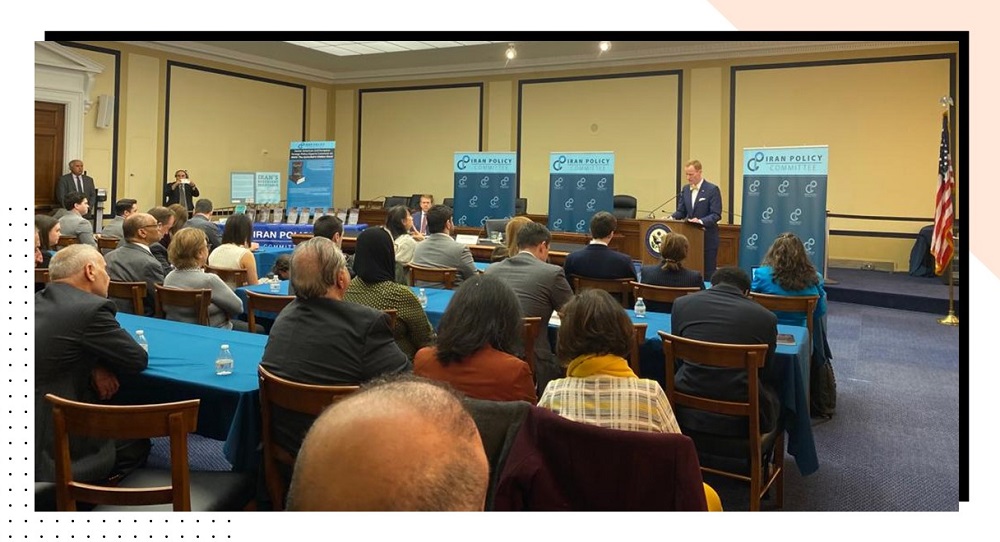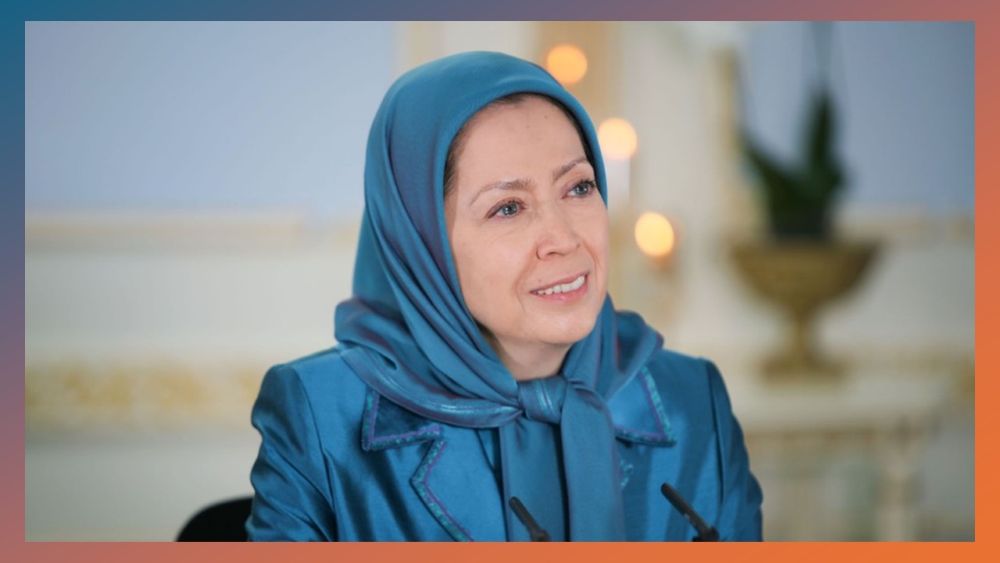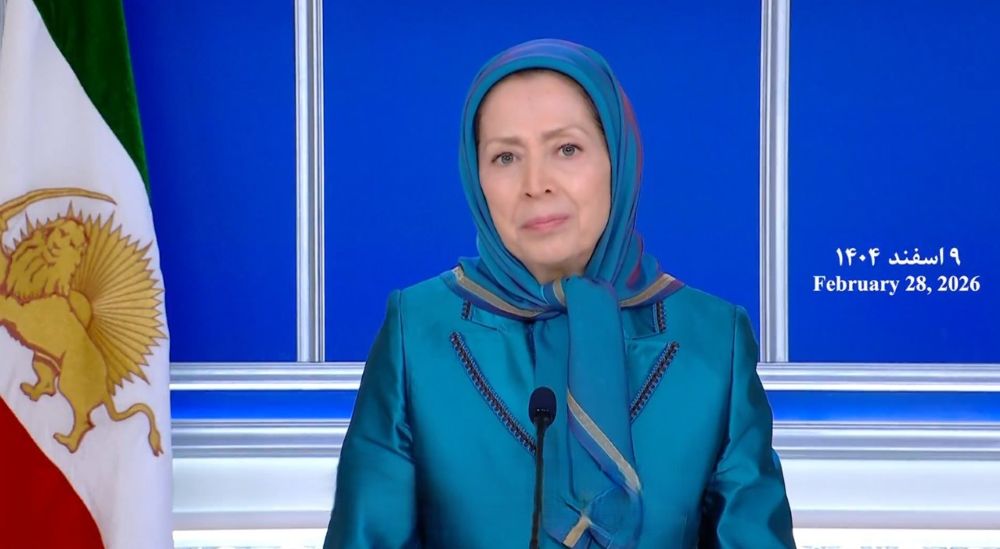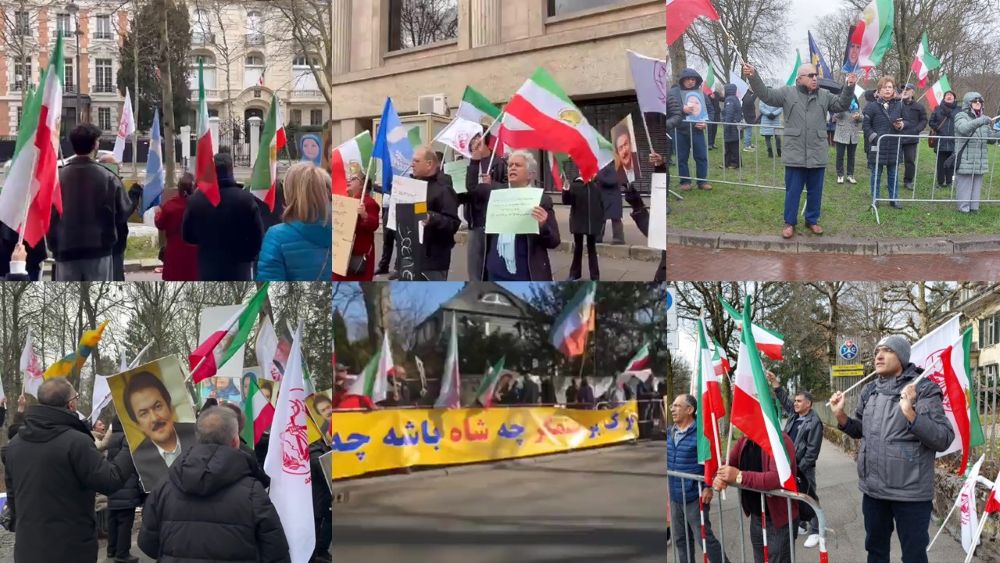
On November 14, during a Congressional briefing held at Capitol Hill, Professor Ivan Sascha Sheehan, the Associate Dean of the College of Public Affairs at The University of Baltimore, provided insights from his latest book titled “IRAN: The Ayatollah’s Hidden Hand.” In this engaging discussion, he delved into the covert strategies employed by Iran to manipulate political and social narratives within the United States.
The professor highlighted the regime’s utilization of assets and agents, its infiltration into the U.S. government, and its endeavors to shape the perspectives of American institutions. Prof. Sheehan elaborated on the contents of his new book, which thoroughly explores disinformation tactics, influence operations, and the regime’s apprehension of internal regime change.
Emphasizing the necessity for a people-centric approach in U.S. policy towards Tehran, Prof. Sheehan advocated for investigations and hearings to address the extent of the regime’s infiltration into U.S. politics. His concluding remarks underscored the readiness of ordinary Iranians for regime change and underscored the crucial role played by the Iranian Resistance in shaping Iran’s future.
Now in the US House of Representatives: Professor @ProfSheehan delves into details of Iran’s expansive misinformation campaign against the Iranian opposition and assassination plots in the US & Europe. @VOAfarsi @HomelandDems @RepMarkGreen pic.twitter.com/NHZnttETGL
— OIAC: Organization of Iranian American Communities (@OrgIAC) November 14, 2023
The full text of Professor Ivan Sascha Sheehan’s speech follows:
Well, thank you, Ambassador Bloomfield, for your extraordinarily generous remarks. Your sterling reputation and commitment to public service as a statesman, as a diplomat, and as a national security leader, inspires all of us.
But I have also learned a great deal over the past decade from you, from your scholarly interpretations and your measured assessments of Middle East policy, and I was truly honored that you would author the foreword for the book that we are releasing today.
At the top of my remarks, a few other expressions of gratitude are in order as well. I’d like to thank the extraordinary team at the Iran Policy Committee for all that they do to help produce actionable research and timely analyses for U.S. officials in both the legislative and executive branches.
For almost two decades, the Iran Policy Committee has demonstrated an unwavering commitment to educating the public about U.S. policy toward Iran, the regime’s malign activities, and the pro-democracy opposition operating in that country.
IPC’s efforts to convene briefings on these urgent policy matters have also helped to inform U.S. officials. Some of you may recall that we had an opportunity to pay tribute to the founder of the IPC, the late political scientist Raymond Tanter, earlier this fall right here in Washington. Professor Tanter served on the senior staff of the National Security Council in the Reagan White House and taught for decades at the University of Michigan. And though he is no longer with us, I trust that he would be very proud of IPC’s staff today.
And let me also thank and extend my deep appreciation to theOrganization of Iranian-American Communities for helping host today’s book launch and congressional briefing here in the Rayburn Building. They have worked tirelessly to coordinate today’s forum, and I thank them for all that they do to remind the American public that the regime in Tehran is not an accurate reflection of the Iranian people.
And I’d also like to thank the University of Baltimore for providing me the academic freedom to examine the topics that I believe are most important. Having examined academic freedom in Iran, this is a privilege that I am keenly aware is not afforded to my counterparts in Iran.
I firmly believe that societies are better when people are allowed access to accurate information and when they’re allowed to think freely, debate, and speak without harm. And finally, I’d like to thank both Congressman McClintock and Congressman Weber and their staff for opening today’s event. Their work on the Iran Human Rights and Democracy Caucus and their support for those fighting for freedom in Iran and the secular republic in Iran is noticed by individuals all over the world. But their efforts to hold Iranian officials accountable for the atrocities they commit against their own people and the people they hold captive are also appreciated.
At the top of my remarks, allow me to offer a few reflections that I believe will help to set the stage for why what we are doing here today in Congress matters so much.
Just a few days ago, after he endorsed my book, Professor Alejo Vidal-Quadras, a former vice president of the European Parliament and the current president of the International Committee in Search of Justice, was brazenly attacked in Madrid by armed assailants outside his home. The assault, which occurred in the middle of the day, was carried out by two individuals who took off on a motorcycle after discharging a weapon at close range in an apparent assassination attempt.
And though he was struck by a bullet in the jaw, Professor Vidal-Quadras miraculously survived. This shameless attack occurred in the largest city in Spain, the fourth most populous EU member state. Spanish authorities have correctly dispatched an anti-terrorism unit to investigate, and this inquiry remains open. But when Professor Vidal-Quadras was asked from his hospital bed who he believed had carried out the ambush on him, he immediately fingerprinted the Iranian regime.
This was hardly a far-fetched proposition, because precisely one year ago, the Iranian Foreign Ministry accused a professor of the grave offense of supporting the People’s Mojahedin Organization of Iran, a group opposed to the ayatollahs and committed to the overthrow of the existing regime.
In Iran, this is a capital offense of the highest order. As a member of parliament, the professor was among the most outspoken champions of the Iranian resistance in Europe, and he remains highly regarded by his American counterparts. And in the days before he was attacked, he offered this ringing endorsement of the book we are releasing today. You can see his comments on the back book cover.
He referred to the manuscript as a compelling assessment of the Iranian regime’s malign attempts to push an influence operation intended to shift American policy by demonizing the Islamic Republic’s democratic opposition and infiltrating the highest echelons of the U.S. government.
He went on to call the study essential reading for policymakers, especially those dealing with security matters. In case he sees this briefing, or perhaps he’s watching from his hospital bed today, I’d like him to know that he is in our thoughts, and we wish him a speedy recovery.
I’m pleased to know that counterterrorism authorities are investigating this attack on such a high-profile European statesman. But let me just say that I have spent a great deal of time over the course of my career poring over terrorism incident data. In my review of highly credible terrorism incident databases, I am simply not familiar with an incident with these attributes or characteristics occurring in the heart of Spain during the daylight hours in recent memory.
Those of us who study terrorist organizations and their state sponsors know that these entities are rarely creative in their use of violence. Murder-for-hire schemes, kidnapping attempts, and assassination plots have been ordered by Iranian authorities right here in Washington and all over Europe. In fact, I’m aware that individuals in this room have been targeted with both sanctions and violence.
As the ambassador noted, a plot to bomb a meeting we were at in Paris in 2018 was thwarted by Western intelligence agencies, and the Iranian spy involved in that attempted targeted bombing was tried, convicted, and sentenced.
But they tried to intimidate us again in 2022 and again in 2023. Some of you may have tuned in to 60 Minutes this past Sunday and watched the former National Security Advisor, Ambassador John Bolton, describe the Iranian regime’s efforts to assassinate him on American soil. The fact of the matter is that Tehran frequently targets outspoken critics of its dangerous and oppressive policies.
Every indicator that is present today suggests that the attack on Professor Vidal-Quadras was ordered by the Islamic Republic of Iran. But let me be clear. As a scholar who has himself been targeted by rogue actors, as someone who has experienced death threats and extensive harassment, I can assure you that efforts to silence and intimidate policymakers, intellectuals, and political opponents do not pay off in free societies.
And this brings me to our topic today. The book that we are releasing today is the culmination of years of extensive research into Iran’s covert strategies to manipulate political and social narratives in the United States. It offers fresh insights into the digital and on-the-ground methods used by Iran to influence American institutions and decision-making processes and to intimidate U.S. officials.
I firmly believe that the findings outlined in this study are crucial for understanding and safeguarding the integrity of U.S. national security and the integrity of our democratic institutions, particularly as tensions flare in the Middle East and the American electorate readies itself for a presidential election next year.
If recent assessments are to be believed, the U.S. is highly likely to experience election interference spearheaded by Russia, China, and Iran.
But it’s not simply election interference that Americans should be concerned with, because Iran’s efforts to infiltrate American politics and influence U.S. policy is broader and more insidious. The book we are releasing today breaks new ground by extending reporting undertaken by prominent news outlets to connect, as the Ambassador said, additional dots by uncovering the theocratic regime’s overt suppression and covert tactics, its fixation with its organized opposition, and its fear of regime change from within.
Iran policy scholars have long understood that the ayatollahs fear internal dissent more than they do external pressure. In a prior study, actually one carried out by Professor Raymond Tanter, the late Professor Raymond Tanter, of state-run media sources determined that the MEK and the NCRI are discussed by regime officials four times as often as all other dissident organizations combined.
The book we are releasing today helps to explain the regime’s malevolent attempts to undermine these organizations and, as a result, to influence U.S. policy. As we release today’s book, it is important that we, I believe, take a step back to acknowledge the broader context, the broader global backdrop, if you will, that we find ourselves in.
We find ourselves today, we gather today, at a time of great turmoil in global affairs. Russia, Iran, and North Korea constitute an axis of rogue state actors, each with surrogates and allies that have committed themselves to violence, belligerence, and terrorism.
The people of Ukraine are faced with unimaginable horrors imposed by their Russian aggressors. And locked in an existential battle with Hamas, Israel continues to face down the specter of terrorism. And finally, it goes without saying that proxy wars rage throughout the Middle East and North Africa.
But this brings me to perhaps the most important thing that I will say today. That is these rogue states and their surrogates are also employing elaborate and sophisticated instability operations and influence campaigns that are coloring Americans’ perceptions and constraining U.S. policy.
Ladies and gentlemen, these activities constitute warfare. Warfare that is cloaked in a web of intermediaries to avoid direct attribution. In the case of Iran, the massive campaign of deception dates back, as the Ambassador suggested, more than four decades. Negotiations over the regime’s pursuit of nuclear weapons have long involved Tehran’s masterful cheat-and-retreat strategies and dishonest diplomacy.
But the regime’s use of assets and agents, some of whom have infiltrated the U.S. government, has been given comparatively less attention. As a scholar, I’ve tried to do what the legislative and executive branches of government have failed to do. And the media has not done so. And that is to connect the dots. I suspect that what we are revealing today in this book is just the tip of the iceberg.
As Ambassador Bloomfield indicates in his foreword, the book we are releasing today pulls back the curtain on the Iranian regime’s efforts to silence its pro-democracy foes and to intimidate the United States. These influence operations help to explain why U.S. officials are faced with this false dichotomy of military intervention on the one hand and unending diplomatic engagement grounded in appeasement on the other. This is not an accurate reflection of the options available to policymakers in this city.
In this book, I help contextualize the disinformation peddled through an intricate network of Iranian operatives and how these influence operations undermine the organized resistance at home while influencing perceptions of them around the world.
Earlier this fall, Semaphore and Iran International exposed a ring of Iranian-backed influence operatives that had infiltrated the highest ranks of the U.S. government. Their disclosures were startling, but they were not surprising, not surprising at all to those who tracked the regime. Having been provided with top-level security clearances, these Iranian agents had access to highly classified information available only to senior U.S. officials, placing them in a unique position to mislead American policymakers.
The actors allegedly collaborated with and took direction from senior Iranian officials while maintaining the appearance of working on behalf of the U.S. government. As Semaphore noted, at least three of these operatives went straight from soliciting talking points from Tehran to working on Iran policy in the Biden administration under U.S. Special Representative for Iran, Rob Malley.
Malley’s security clearance was subsequently suspended over concerns related to his handling of classified information. And as a footnote, I should note that he was a key architect of the Obama and Biden administration’s Middle East policies that had the effect of empowering the Islamic Republic of Iran. The billions of dollars funneled to the regime during his tenure were reportedly used to strengthen Hamas, Hezbollah, and the Assad family in Syria, all of which are suddenly material today.
While the principal objective of the years-long disinformation campaign uncovered by Semaphore was to influence and derail U.S. policy toward Iran, those involved also prioritized the promotion of a misleading characterization of the leading Iranian opposition group, the Mojahedin-e-Khalq, or People’s Mojahedin Organization of Iran.
By seeking to neutralize favorable impressions of that organization among Washington’s foreign policy elite, the mullahs in Iran sought to take down an entity capable of aiding Western attempts to curtail the Iranian regime’s nuclear weapons program, its malign regional agenda, its human rights abuses, and its fundamentalist inclination. By brazenly targeting the dissident organization, the operatives hoped to leave U.S. officials with the false impression that there is no alternative to the ayatollahs, and certainly not one with a pro-democracy record.
In this book, I outline the regime’s elaborate campaign to install spies and agents, paid hands and mouthpieces, in positions of influence. These individuals, these operatives, did exactly what they were told. They promoted Tehran’s viewpoints, peddled disinformation about the MEK and NCRI, discouraged U.S. officials from pursuing regime change, and warned against support for alternatives to the despotic regime.
In part one of the book, I examine how the Iran Experts Initiative, the IEI, was rolled out to foster misleading impressions and promote the notion that the Iranian people are little more than compulsive protesters, and compulsive demonstrators, and that the cries for civil and human rights on the Iranian street are nothing more than a normal part of everyday life and not an indication of an overarching desire for change.
In part two, I examined the pro-democracy, anti-regime protests that have rocked the Islamic Republic and exacerbated anxieties, including fear of overthrow. And on this point, it is important to acknowledge, crucial to acknowledge, that the Iranian regime has been hammered by repeated waves of anti-regime protests since at least September 2022, because in that year alone, some 280 cities in all 31 provinces participated in collective action against their rulers. And these protests, these protests that occurred across the country, were repeatedly blamed on the MEK and the NCRI.
In part three, I uncover the disinformation tactics and influence operations employed to paint inaccurate impressions of the organized opposition.
In part four, I explore the security agencies active in Iran against their opponents.
In part five, I examine why the regime has moved from simply peddling falsity to attacking the opposition.
The bottom line is that Iran’s hidden hand efforts to demonize the Iranian opposition abroad and attack dissidents at home. These are tactics that are part of the regime’s geopolitical strategy for survival.
I believe that the book we are releasing today is essential reading for decision-makers here in Washington because the world knows about Iran’s nuclear, terror, missile, drone, and cyber threats, but far less is known about how the Ayatollahs push their policies in the U.S. and around the world.
The report we are releasing today highlights the strategies used by the Islamic Republic to undermine the nationwide uprising and portray the regime as invincible, a permanent fixture of the Middle East landscape, in order to gain concessions from the United States and Europe.
With inside and outside Iran, Tehran leverages agents and assets, spies and operatives to stay in power and advance a rogue agenda that is contrary to U.S. interests. These operatives shape policy options, cajole high-level figures, and when all else fails, they use fear tactics, intimidation, and violence.
It is often remarked that in this world of espionage, all is not always what it seems. Some of these individuals may not be as they appear. Some of these individuals are disguised as opponents of the regime, reformists like the followers of the Shah, who would have you believe that a monarchy, not a democracy, is the answer.
But as a scholar who studies Iran, I can tell you with certainty, that the Iranian people want democracy, not clerical rule and not a monarchy. The people’s calls, their universal calls, are for a democratic future.
Though I have been somewhat discouraged by the failure to act against the Iranian regime by the executive branch in recent years, I have been encouraged by what I have seen in this body, in the United States Congress, because Congress has shown courage in reminding the world that the Iranian regime remains the world’s leading state sponsor of terrorism, a distinction it has earned every year since 1984.
But now, more needs to be done. The House and the Senate must call for investigations and hearings. The Iranian regime poses a direct national security threat to U.S. citizens and U.S. security interests. The fact of the matter is that no person, no organization who aligns themselves with a hostile state or serves as a foreign agent should wield influence over U.S. policy or have access to sensitive national security information.
We have seen measures from the U.S. House of Representatives calling for all means necessary to prevent Iran from getting nuclear weapons, but now we need resolution and legislation to leverage all means necessary to develop a more complete sense of Iran’s influence and espionage operations and to address the regime’s infiltration in U.S. politics, including the tactics they employ to advance their broader geopolitical agenda.
This, ladies and gentlemen, will have broad consequences for U.S. policy, and it will shift U.S. policy from a regime-centered approach to a people-centered approach. In recent days, in the lead-up to today’s briefing, I have been asked by journalists how my assessment extends the reporting conducted by Semaphore, so let me briefly speak to that important question.
Whereas the Semaphore report delves into the operational details of the IEI, including funding sources and the nature of the interaction between Iranian officials and the participants of IEI, the report we are releasing today focuses on the implications of the IEI for U.S. policy towards Iran and the potential manipulation of narratives surrounding Iran’s nuclear program and opposition groups.
The report we are putting out today raises concerns about the alleged activities and associations of individuals like Arianne Tabatai, for example, her advancement of Iranian interests, her interactions with Iranian officials, and her proximity to key U.S. security figures.
This report provides a deeper examination of Tabatai’s activities, including her publication record, her statements at academic conferences, and her warnings against alternatives to the autocratic regime, like the MEK. In light of what appears to be a well-orchestrated campaign to manipulate U.S. policy, I am today prepared to call the question: Have Iranian influence operations given way to espionage? How extensive is the damage? And are U.S. officials prepared to act?
In closing, it is clear to me that ordinary Iranians’ readiness to confront the regime’s suppressive forces is at an all-time high. But it would nevertheless be naïve to assume that Iran’s theocratic rulers will not persist in their policy of repression to the bitter end and refuse to alter their behavior. But every indication points to three principal conclusions:
Number one, the overwhelming majority of Iranians want regime change.
Number two, the Islamic Republic’s over-reliance on brute force and suppression makes the status quo intensely fragile.
And number three, Iran is ripe for a democratic transition.
If the past is prologue, I believe that the Iranian Resistance will play an even more critical role in Iran’s future. And it would therefore be a grave mistake for U.S. officials and Western powers to formulate any policy on Iran without taking the regime’s foremost adversaries into account.
And perhaps even more importantly, to allow influence operations to undermine the ability, their ability, to replace the regime in Iran.
I thank you all for taking the time from your busy schedules today to attend our briefing. And I do hope that when hearings are held and investigations get underway, you will invite Ambassador Bloomfield and me back to give testimony at those hearings.
Thank you very much. Thank you.



